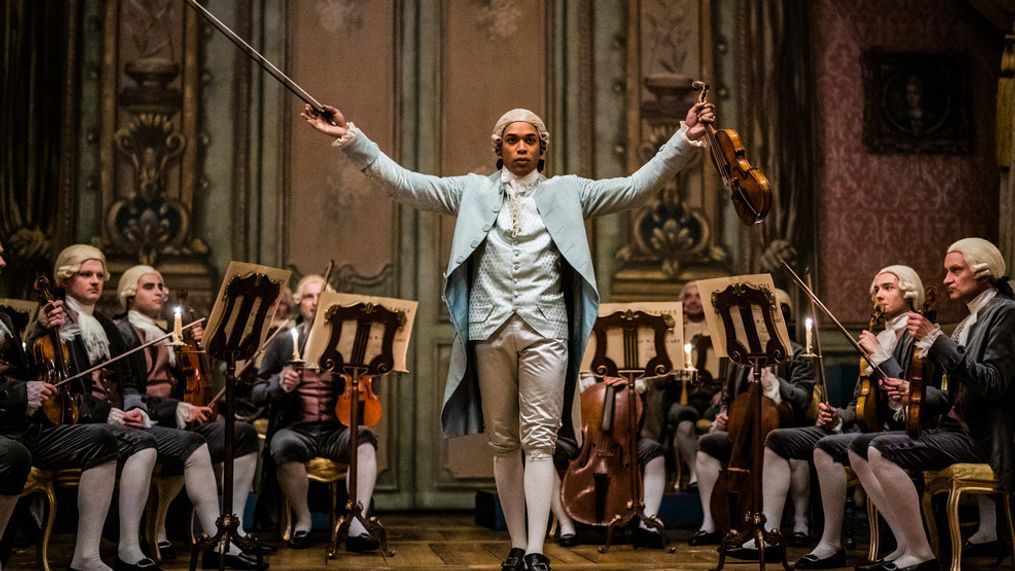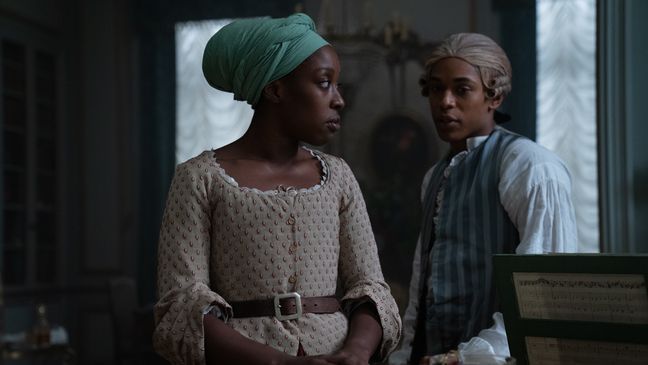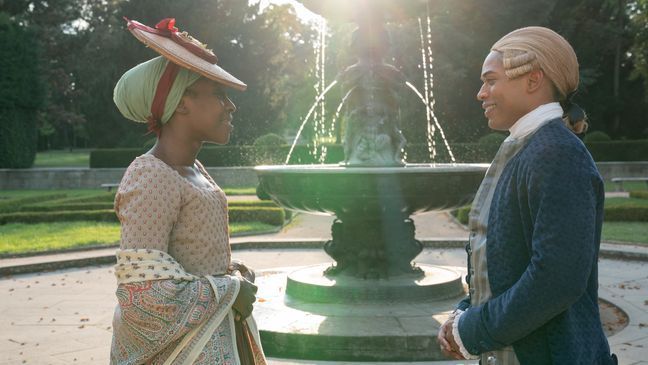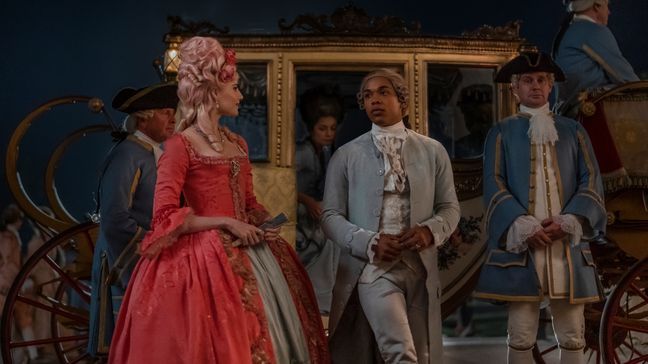Review: 'Chevalier' offers a glimpse into the life of an unheralded virtuoso
SALT LAKE CITY (KUTV) — Chevalier
3.5 out of 5 Stars
Director: Stephen Williams
Writers: Stefani Robinson
Starring: Kelvin Harrison Jr., Samara Weaving, Lucy Boynton
Genre: Biography, Drama, History
Rated: PG-13 for thematic content, some strong language, suggestive material and violence
SALT LAKE CITY (KUTV) – Studio Synopsis: Inspired by the incredible true story of composer Joseph Bologne, Chevalier de Saint-Georges. The illegitimate son of an African slave and a French plantation owner, Bologne (Kelvin Harrison Jr. in a tour de force performance) rises to improbable heights in French society as a celebrated violinist-composer and fencer, complete with an ill-fated love affair and a falling out with Marie Antoinette (Lucy Boynton) and her court.
Review: The history that we’ve been taught has a way of celebrating some and marginalizing others. Misconceptions are common, often accepted. Take the French Revolution: "Let them eat cake” (“Qu'ils mangent de la brioche”) was likely never said by Marie Antoinette, but the phrase feels appropriate considering her disregard for the working class. Then again, some historians believe that letters written by Antoinette at the time of the uprising paint a radically different story about her attitude toward the poor.
You might also mistakenly believe that “Les Miserables” is about the French Revolution. It is about the June Rebellion, an event that occurred 43 years later.
One story that is likely completely foreign to you is the life of Joseph Bologne, the illegitimate son of French plantation owner and an African slave. Bologne was one of the most celebrated violinists and composers of his era. His legacy has been ignored, scrubbed from history. Even his role in the French Revolution, where he served as a colonel, is often overlooked.
It should be noted that France abolished slavery three times. Once in 1198, and then again in 1794, and once more 1848. Bologne lived from December 1745 – June 1799.
So, we know that France during Bologne’s lifetime was primarily an era of discontent: race and social class were hotly debated topics. A Black man with a violin, no matter his actual skill, was something to be laughed at – and that is how “Chevalier” begins. Bologne, emboldened by a familiarity with Antoinette, challenges a particularly noteworthy violinist and composter to a musical duel at said famous violinist’s concert. Bologne isn’t taken seriously until he demands it.
Bologne, as portrayed in “Chevalier” by Kelvin Harrison Jr., is a disagreeable fellow. Overconfident and boisterous, Bologne is known as much for the volume of his voice and ambition as he is for his skin color. On that note, there was a part of me that thought, “Why doesn’t he just be quiet and respectful?” I felt ashamed before I finished the thought. Is there no room for ambition in a Black man’s life? Should he accept what he is given and try for nothing more? His contemporaries weren’t better behaved.
What other latent prejudices inside of me are waiting to reveal themselves?
Harrison’s performance is fantastic; I wouldn’t feel anything if it wasn’t. There’s no prerequisite that says a film’s protagonist must be approachable:" Brilliance isn’t always accompanied by kindness. “Chevalier” is about artistic awakening and social reckoning.
Had this been a series, rather than a film, I would have liked more of Lucy Boynton’s Marie Antoinette. I believe there’s more nuance to many of the decisions that this version of Antoinette makes. Likewise, Samara Weaving’s Marie-Josephine is also an interesting character that could be further explored. But director Stephen Williams and writer Stefani Robinson have centered the film on Bologne. To go further into the lives of the supporting characters would change the nature of the narrative even though it would maintain the thematic tone.
I do wish the film felt a little less conventional. That it could have incorporated a stylistic swagger to match its protagonist. I think there is room for more personality in the cinematography and sound design. The costume design is superb.
I find “Chevalier” to be educational, entertaining, enlightening and easy to recommend.




